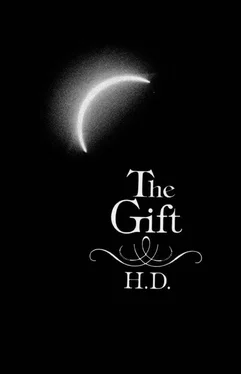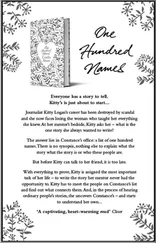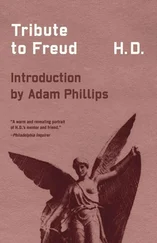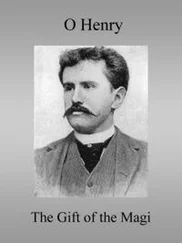Hilda Doolittle - The Gift
Здесь есть возможность читать онлайн «Hilda Doolittle - The Gift» весь текст электронной книги совершенно бесплатно (целиком полную версию без сокращений). В некоторых случаях можно слушать аудио, скачать через торрент в формате fb2 и присутствует краткое содержание. Год выпуска: 1982, Издательство: New Directions Publishing, Жанр: Современная проза, Биографии и Мемуары, на английском языке. Описание произведения, (предисловие) а так же отзывы посетителей доступны на портале библиотеки ЛибКат.
- Название:The Gift
- Автор:
- Издательство:New Directions Publishing
- Жанр:
- Год:1982
- ISBN:нет данных
- Рейтинг книги:3 / 5. Голосов: 1
-
Избранное:Добавить в избранное
- Отзывы:
-
Ваша оценка:
- 60
- 1
- 2
- 3
- 4
- 5
The Gift: краткое содержание, описание и аннотация
Предлагаем к чтению аннотацию, описание, краткое содержание или предисловие (зависит от того, что написал сам автор книги «The Gift»). Если вы не нашли необходимую информацию о книге — напишите в комментариях, мы постараемся отыскать её.
The Gift — читать онлайн бесплатно полную книгу (весь текст) целиком
Ниже представлен текст книги, разбитый по страницам. Система сохранения места последней прочитанной страницы, позволяет с удобством читать онлайн бесплатно книгу «The Gift», без необходимости каждый раз заново искать на чём Вы остановились. Поставьте закладку, и сможете в любой момент перейти на страницу, на которой закончили чтение.
Интервал:
Закладка:
It was quiet in the room and Gilbert was cutting out some paper soldiers with Papa’s shears that he wasn’t supposed to take from Papa’s table, unless he put them back before Papa got home. Harold was helping me with the paintbook that was almost all painted in, and the piano was there, like it was in the old house with Mama’s books of music piled on top; she played Traumerei when I asked her, but she did not play the piano so much. She said I must have music lessons, but it was too far to go to Philadelphia. Doctor Snively said I could come to their house and have a lesson when Margaret and Ethelwyn and Muriel had their lessons, twice a week on Tuesday and Friday. Mama said it would be too much to ask, and Doctor Snively said the children were so happy to have neighbors at last; de Forest was Gilbert’s age or a little older and Margaret was a little older than I. I was between Margaret and Ethelwyn. Soon, I would begin these music lessons, Mama said. The piano was open and there was the Venus that Mama had brought back from Europe, from Paris. The Venus was called Venus de Milo and there were the same pictures we had in the old house, and some more of the photographs of places they had been to in Europe, on the stairs.
The old streetcar or steamcar went past the house once an hour; it was going past soon; we knew when the times were, ten minutes past the hour when it was on time. There was a switch opposite the Fetters’ farm, where the two cars passed each other, the one going to the city and the other coming back, and sometimes they were late. We would wait for the steamcar that ran with a sort of engine, not fastened to the car but part of it. The steamcar went past the house and we waited because perhaps they would come back, but they did not come back, so we went on.
Gilbert went out in the hall, then he came back. Then he took the shears and put them on Papa’s table. “But he hasn’t come back,” I said. Harold was painting a yellow ruffle on a dog that looked like the dog in our old Punch and Judy; the dog, in the colored picture that we were meant to copy the uncolored picture from, had a red ruffle. I did not know if Harold was making it different on purpose; you can hardly see the yellow in the lamplight.
“The yellow will look different in the morning, yellow looks different at night,” I told Harold. I did not say, “But you should have painted the ruffle red,” because we did not always paint the picture the same as the colored picture on the opposite page.
I said, “Yellow looks different in the morning.” Harold said, “I know.” The clock was ticking very loudly. Annie should come in and tell us to go to bed, but when Papa and Mama were out they did not always tell us. Now it would be another hour for the trolley to pass the house. We had a driveway past the house; it would be better, Mama told Doctor Snively or the Ashursts when they drove up and their wheels scrunched the pebbles, in the spring, “The University is having it properly tarred and rolled,” Mama said. There were three big maple trees and a wild cherry tree by the road, but they said it was not any good for fruit, and in the wrong place, anyway, and it would have to be cut down; there were little trees planted back of the kitchen, they were peach trees, but we had not had any peaches yet. The Ashursts sent things from their garden, iris roots and different shrubs for the shrubbery.
Well, now there was only the next car to wait for, or Ida or Annie to come in and tell us to go to bed; Gilbert was waiting, his elbows were on the table, he was pretending not to look at us, but he was looking at us. This was the same table that we had in the old house, in the sitting room there. We put on a white cloth and flowers and presents on this table for birthdays, but there would be no birthday for a long time; all of our birthdays came near together, mine in September, the two boys’ in October. Harold went on painting.
There was a bump on the front porch by the steps, as if someone were coming up, “Perhaps it’s them,” I said, but then it was quiet. Gilbert started putting his new cut-out paper soldier in the shoe box where he had the other old ones. Then I thought I heard someone bump again and I ran out to the front door. I opened the front door. The light from the lamp in the hall showed the porch, it was empty, there were two benches built in the wall that made a little open room of the roofed-in part of the porch by the door.
It was dark and I could not see; the bright light from the hall went over the floor of the porch only as far as the steps, then the dark. I stood and looked at the dark beyond the porch steps and then Papa walked across the light.
He walked right across the floor and I said, “Oh, Papa,” and ran out, with the door wide open. I took his hand and I said, “Oh, Papa,” and he didn’t say anything. He did not hold my hand tight in his hand, he did not take my hand the way he usually did, his fingers did not close tight round my hand the way they always did. It had never happened before that his fingers did not close round my hand.
His hand did not seem to belong to him, his arm seemed like the arm of a scarecrow or a rag doll. I pulled at his sleeve, and his sleeve and his arm did not seem to pull him. I pulled at the overcoat he had on, I pulled at his coat, he was swaying back and forth. Was this a drunk man? Is this how drunk people act, and he had no hat on, and now I pulled him to the open door and I looked at him … and I looked at him.
I pulled him in the door, he stood on the rug on the hall floor. There was the rug on the floor and I did not see anything except Papa’s face, but I knew what was in the hall, but it went far away, then it came clear, then everything in the hall was peculiar; I mean it had some special place and some special reason for being there, as if it were things you cut out of the back of magazines and paste in your paper-doll house. That is not just what I mean, but that is what I mean.
The clock stood there and ticked and it was a clock that belonged to a story, it was a clock that had a door that went into a tunnel, that led to a house in the woods, and the old man and the old lady on the mantelpiece in the hall (that they had brought back with the square dish with the tulip and the rose painted on it, from Dresden) were like an old man and an old lady in a fairy story who come alive after the clock strikes midnight.
The clock would not strike for a little while, the car ran past the house at ten minutes past the hour and the car was late and then we had waited a little, so the clock would not strike the hour for perhaps half an hour or almost three-quarters of an hour. The hour was cut in half, it might be almost the half-hour, because Gilbert had said when he came back from putting Papa’s desk shears back on his table, “The old car’s late, as usual.”
He had said that, I remembered it now. Harold was sitting at the table and I said, “Yellow looks different by daylight,” and he said, “I know.” Harold was sitting at the table and Gilbert was putting his new cut-out soldiers in the shoe box. But really we were in the hall.
Gilbert shut the front door. Harold was there by me and I pulled at Papa’s coat. I pulled at his coat and I pulled him into his study and Gilbert got the lamp from the hall. When he was pushed down in the chair by his table, my face was almost as tall as his head when he was sitting down, so it looked nearer.
The blood was running down from the side of his face that was by me, and there was dust on his coat, and the arm that I had pulled at on the porch hung over the chair.
His eyes were wide open but he did not seem to know us. He sat in his chair. There was the lamp on the table that Gilbert must have put there and Gilbert was not there. Harold and I were alone with him and he did not seem to know us and he did not shut his eyes and his eyes went on looking and looking.
Читать дальшеИнтервал:
Закладка:
Похожие книги на «The Gift»
Представляем Вашему вниманию похожие книги на «The Gift» списком для выбора. Мы отобрали схожую по названию и смыслу литературу в надежде предоставить читателям больше вариантов отыскать новые, интересные, ещё непрочитанные произведения.
Обсуждение, отзывы о книге «The Gift» и просто собственные мнения читателей. Оставьте ваши комментарии, напишите, что Вы думаете о произведении, его смысле или главных героях. Укажите что конкретно понравилось, а что нет, и почему Вы так считаете.












